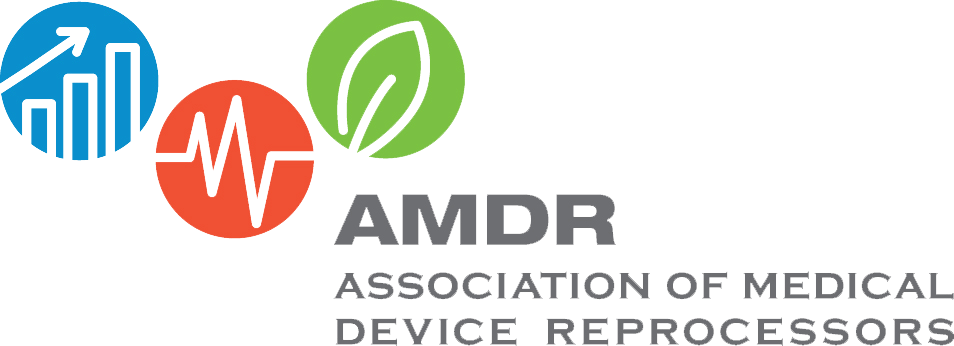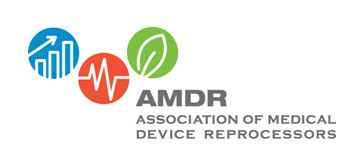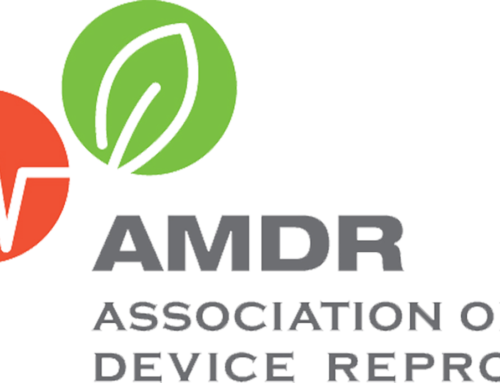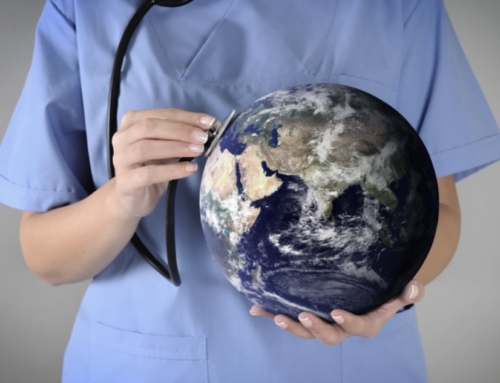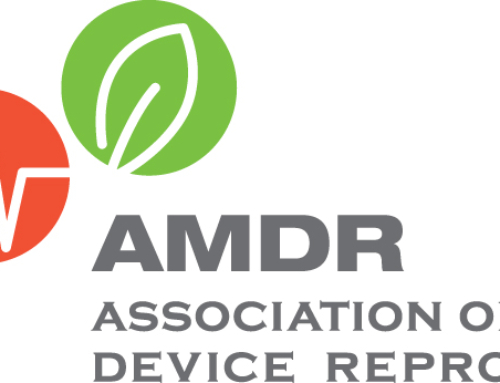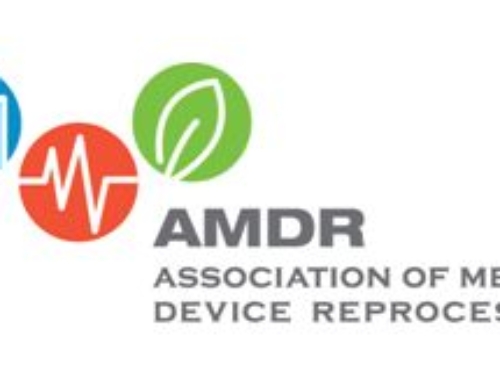Hospitals Worldwide Reprocessed over 31 Million “Single-Use” Devices, Saving Over $437 Million Last Year
Key Findings:
- AMDR members reprocessed and sold 31,683,256 medical devices in 2020
- Members helped their hospital and surgical center customers divert 11,964,160 pounds (5,438,254 kilos) of medical waste from landfills and incinerators
- 10,148 hospitals in 13 countries, including all U.S. News and World Report “Best Hospitals,” 43 U.S. military hospitals, and 28 of the prestigious German University Hospitals work with regulated reprocessors
[Washington, DC / Berlin, Germany – December 24, 2021] Given the unprecedented financial and material constraints hospitals are experiencing, solutions like medical device reprocessing are more important than ever. The Association of Medical Device Reprocessors, (AMDR), released today its aggregated industry data on reprocessor company impacts to healthcare. AMDR is pleased to report that its members saved hospitals $437 million by reprocessing over 31 million “single-use” devices (SUDs) in 2020.
Commercial reprocessors also helped hospitals and surgical centers eliminate nearly 12 million pounds of medical waste, at the same time that climate change and emerging data on healthcare’s contribution to greenhouse gas emissions, demand better solutions from every sector of the economy.
AMDR is the global trade association representing the interests of the commercial medical device reprocessing industry.
“Now more than ever, hospitals need to save money to hire more nursing staff, buy more equipment, and fight the pandemic,” said Daniel J. Vukelich, Esq., President, AMDR. “AMDR’s annual member data report for 2020 demonstrates the continuing impact and potential of medical device reprocessing as a means for hospitals to target more resources toward the COVID-19 pandemic or remain financially afloat given unprecedented financial pressures. Our members are enormously proud to have a solution that simultaneously addresses two of the world’s greatest threats – pandemic and climate change.”
As the trade association for the professional medical device reprocessing industry, AMDR annual seeks data from members, ensuring a reliable picture of the industry’s value – and affording new insights for its potential. The member survey requires members to supply data in a standardized, anonymized and then industry-wide aggregated method. Savings estimates were calculated as the difference between the reprocessed sales price and the average sales price or actual costs paid by the hospital facility as compared to the reprocessed sales price. Waste estimates were calculated assuming a $0.30 per pound hazardous medical waste assumption, a low estimation based on Practice Greenhealth data on average waste removal costs.
Reprocessing SUDs Reduces Greenhouse Gas Emissions from the Health Sector
The health sector accounts for almost 5% of all carbon dioxide emissions worldwide. If it were a country, it would be the fifth largest emitter, and its C02 emissions are more than twice the C02 emissions of the entire airline industry.[1] A closer look finds that over 80% of greenhouse gas emissions generated by the health sector comes from the supply chain (known as “Scope 3”).[2]
Recently, researchers conducted and published a well-designed life cycle assessment of one such “reprocessed” device (an electrophysiology catheter) and found it to reduce ozone depleting emissions by nearly 90%, and climate change-specific emissions by over 50% compared to using an original device.[3] By using fewer raw materials required to create original devices, and safely reusing more reprocessed devices, hospitals not only save money, but also appear to reduce greenhouse gas emissions.
“At a time when interest in making healthcare less expensive and greener could not be higher, this data confirms to hospital supply chain decision-makers and healthcare and environmental stakeholders that there are enormous benefits from medical device reprocessing,” said Mr. Vukelich.
Additionally, in 2020, AMDR-member reprocessors partnered with hospitals and surgical centers resulting in additional saving of $3,589,248 /€ 3,145,704 in eliminated waste disposal costs and creation of 2,119 green jobs.
About AMDR
The Association of Medical Device Reprocessors is the global trade association for the regulated, commercial single-use device reprocessing and remanufacturing industry. For 21 years, AMDR has promoted reprocessing and remanufacturing as an important healthcare strategy that helps hospitals and healthcare providers increase quality, reduce costs, and strengthen the supply chain. AMDR protects the interests of its members in regulation, legislation and standard-setting.
AMDR members include Innovative Health, Medline Renewal, NEScientific, Arjo ReNu Medical, Stryker Sustainable Solution, Sustainable Technologies (a Cardinal Health Business), and Vanguard AG.
Having played a key role in the establishment of the reprocessing industry, AMDR continues to push the global medical technology industry, leading the way for remanufacturing to play a defining role in the evolution of new device technologies.
